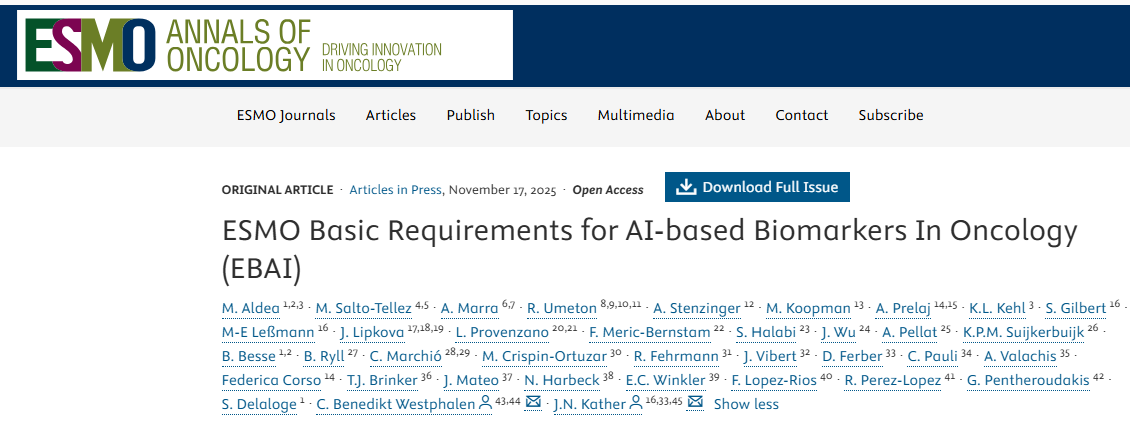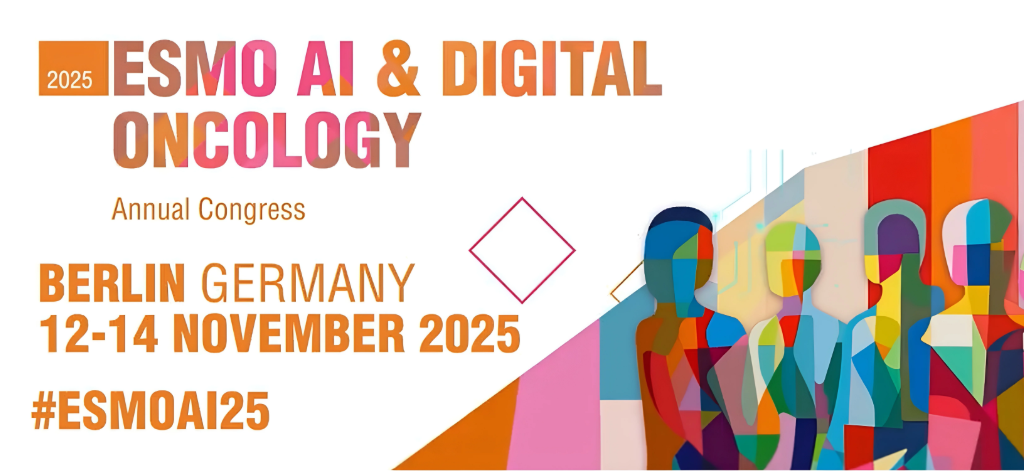Espen Walker, Head of Global Medical Diagnostics at AstraZeneca, shared a post on LinkedIn:
“The future of biomarkers is digital. The inaugural ESMO AI and Digital Oncology congress last week represented the connection of computational sciences and oncology, with diagnostics and digital biomarkers at the forefront. It was great to see how multimodal analysis of clinical data can help identify a patient for the right treatment, and AI is making this a reality!
In the future of AI, it’s important we remember the need for humanity and to Connect, Communicate, Collaborate. I enjoyed engaging with Jakob Nikolas Kather, Faisal Mahmood, Nicola Fusco, Jorge Reis-Filho, Hadassah Sade, Thomas Di Maio, David Dellamonica and more to debate challenges and potential paths forward for AI and diagnostics in precision oncology.
See below for some of the key events and recent publications on ESMO Guidelines for AI Biomarkers, as well as Computational Pathology messaging tools…
Exciting highlights from the congress:
- Unlocking the potential of AI in Precision Oncology- Symposium from AstraZeneca with Nicola Fusco, Marina Garassino, and Frederick Klauschen showcased the transformative power of AI in oncology and brought critical awareness to TROP2 NMR and QCS to over 250 delegates
- Presentation on breast cancer patient stratification using AI from Constance Boissin, a postdoctoral fellow from Karolinska Institute, working with AstraZeneca
- Roundtable on turning cutting edge science into reality for patients led by Thomas Di Maio and Silvia Ramírez
- Presentation on AI to de-risk drug development by Jorge Reis-Filho, with a lively discussion following
- Poster Power! I was truly impressed by the data shared in the congress posters, with extensive publications from the computational pathology team led by Haddasah Sade
Recent connected publications and messaging:
- ESMO AI based biomarkers for oncology new guidance:
Class A (AI quantification of established biomarkers); Class B (AI as indirect/pre-screening measures of known biomarkers); Class C (novel AI-derived biomarkers for prognosis [C1] and treatment prediction [C2]). - Computational Pathology messaging in collaboration with the Health Policy Partnership:
Infographic and video resources that outline both the promise of computational pathology and the systemic action needed to bring it into routine care.”
Title: ESMO Basic Requirements for AI-based Biomarkers In Oncology (EBAI)
Authors: M. Aldea, M. Salto-Tellez, A. Marra, R. Umeton, A. Stenzinger, M. Koopman, A. Prelaj, K. L. Kehl, S. Gilbert, M-E Leßmann, J. Lipkova, L. Provenzano, F. Meric-Bernstam, S. Halabi, J. Wu, A. Pellat, K. P. M. Suijkerbuijk, B. Besse, B. Ryll, C. Marchió, M. Crispin-Ortuzar, R. Fehrmann, J. Vibert, D. Ferber, C. Pauli, A. Valachis, Federica Corso, T. J. Brinker, J. Mateo, N. Harbeck, E. C. Winkler, F. Lopez-Rios, R. Perez-Lopez, G. Pentheroudakis, S. Delaloge, C. Benedikt Westphalen, J. N. Kather
Read the Full Article in Annals of Oncology.




